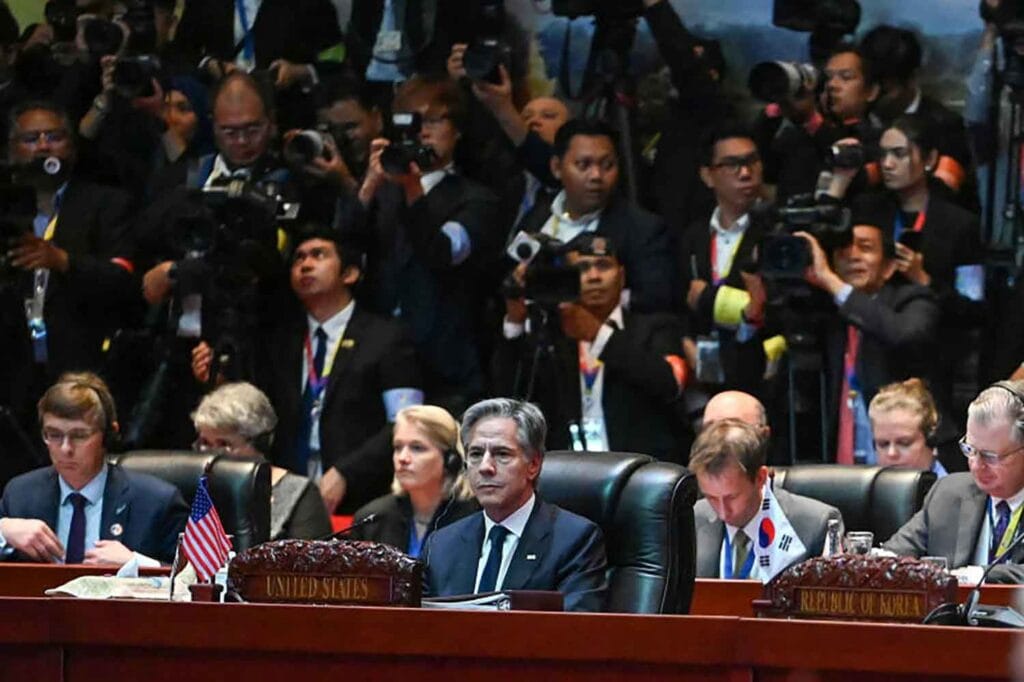U.S. official accuses Russia, China of thwarting consensus at East Asia Summit
A U.S. official has revealed that Russia and China blocked a proposed consensus statement at the East Asia Summit, held in Laos, centered on contentious language regarding the South China Sea.

A U.S. official has revealed that Russia and China blocked a proposed consensus statement at the East Asia Summit, held in Laos, centered on contentious language regarding the South China Sea.
The draft, reached by consensus among the 10-member Association of Southeast Asian Nations (ASEAN), was presented to the 18-nation summit on Thursday, but faced opposition from the two powers.

“ASEAN presented this final draft and said that, essentially, this was a take-it-or-leave-it draft,” the official, who requested anonymity, reported. While the United States, Japan, Australia, South Korea, and India expressed their support for the statement, Russia and China categorically rejected it.
Russian Foreign Minister Sergey Lavrov explained the refusal, stating that the declaration was not adopted due to “persistent attempts by the United States, Japan, South Korea, Australia, and New Zealand to turn it into a purely political statement.”
The key point of contention involved references to the United Nations Convention on the Law of the Sea (UNCLOS), with the U.S. official clarifying, “There was certainly no language that was getting into the nitty gritty of any particular standoff, no language that was favoring any claimant over any other.”
China’s expansive claims over the South China Sea have intensified tensions with several ASEAN nations, particularly the Philippines. While China asserts it supports the negotiation of a Code of Conduct with ASEAN, it has repeatedly rejected a 2016 arbitral ruling that deemed its claims without basis under UNCLOS.
According to a draft seen by Reuters, the proposed EAS statement included additional clauses that were not agreed upon, including a reference to a 2023 U.N. resolution affirming that UNCLOS establishes the legal framework for maritime activities. Another disputed clause addressed regional challenges related to the South China Sea, the Korean Peninsula, Myanmar, Ukraine, and the Middle East.
During the summit, Chinese Premier Li Qiang reiterated Beijing’s commitment to UNCLOS and the urgent conclusion of a Code of Conduct. He emphasized, “Relevant countries outside the region should respect and support the joint efforts of China and regional countries to maintain peace and stability in the South China Sea and truly play a constructive role for peace and stability in the region.”














